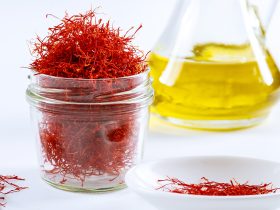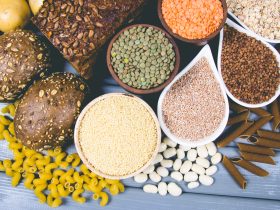Wouldn’t it be wonderful if a particular food could act as a shield against all the menacing viruses and germs floating around us? Perhaps something as delightful as chocolate? While that might sound miraculous, fortifying your defense against illnesses isn’t quite as straightforward.
It’s crucial to emphasize that handwashing remains the frontline defense in preventing the acquisition of viruses, and adequate sleep plays a pivotal role in strengthening immunity.
However, your dietary choices undeniably contribute to your body’s ability to combat colds and flu. It’s not merely about a single food item, but rather the combination of nutrients and compounds within your daily meals that significantly impact the strength of your immune system.
Here are some dietary habits that can assist in maintaining your health.
Get your daily dose of fruits and vegetables
Including a daily intake of fruits and vegetables is crucial for maintaining overall health, particularly for bolstering the immune system. These foods are rich in essential vitamins that play key roles in supporting immune function.
Vitamin C, abundantly found in various fruits and vegetables like strawberries, bell peppers, broccoli, and citrus fruits, is renowned for its immune-boosting properties. It aids in the proper functioning of immune cells, particularly phagocytes. These cells act as the body’s defense by engulfing and neutralizing potentially harmful particles, including bacteria and viruses.
Furthermore, Vitamin A, present in foods such as sweet potatoes, spinach, carrots, and cantaloupe, is vital for maintaining the health of mucosal tissues. These tissues line various parts of the body, including the mouth, intestines, and respiratory tract. A healthy mucosal lining acts as a barrier against pathogens and helps the immune system function optimally.
It’s crucial to emphasize that obtaining these vitamins from whole fruits and vegetables is preferable over relying solely on individual vitamin supplements. The synergy of various components, including vitamins, minerals, antioxidants, and fiber, present in natural foods offers a more comprehensive and effective protective effect against illnesses.
Eating a diverse range of fruits and vegetables ensures a broader spectrum of nutrients that support immune health and overall well-being. Aim to include a variety of colorful fruits and vegetables in your daily diet to harness the numerous health benefits they offer. For example, you could go for the vegan military diet if you want to focus on fruit and vegetables while also losing some weight.
However, consulting with a healthcare professional or a registered dietitian for personalized recommendations regarding dietary needs and potential supplements is essential, especially for individuals with specific health concerns or deficiencies.
Ensure an adequate protein intake
Having an adequate intake of protein is vital for supporting a robust immune system. Protein-rich foods provide essential amino acids necessary for building crucial proteins in the body, including antibodies, which play a pivotal role in defending against infections and supporting immune function.
Animal-based protein sources, such as beef and pork, are notably beneficial as they contain not only protein but also zinc. Zinc is a mineral essential for various immune functions, including the production and function of immune cells like T-cells. These cells are crucial for recognizing and fighting off pathogens.
For individuals who prefer plant-based options, there are sources of zinc available. Foods like cashews and chickpeas offer plant-based alternatives rich in zinc, providing an option to support immune function without relying solely on animal-based proteins.
Before you embark on this journey, make sure you check out the best types of plant-based protein so you can make informed decisions and enjoy the benefits, without any risks.
A well-balanced diet that includes adequate protein from various sources, whether animal or plant-based, contributes to supporting a healthy immune system. It’s important to note that consuming a variety of protein-rich foods ensures a diverse intake of nutrients and amino acids necessary for overall health and immune function.
However, while protein is essential, it’s advisable to maintain a balanced diet that includes a variety of nutrients from different food groups. Consulting with a healthcare professional or a registered dietitian can provide personalized guidance on ensuring adequate protein intake and overall dietary requirements to support optimal immune health, especially for individuals with specific dietary preferences or health concerns.
Incorporate fermented foods into your diet
Incorporating fermented foods into your diet can offer significant health benefits. These foods undergo a natural preservation process by beneficial bacteria and contribute positively to your gut microbiome—the diverse community of bacteria residing in your digestive tract. This microbiome plays a pivotal role in supporting various aspects of health, particularly immune function.
Fermented food varieties such as yogurt (look for labels specifying “live and active cultures”), kefir, sauerkraut, miso, and kimchi are rich sources of beneficial bacteria known as probiotics. These probiotics promote the growth and proliferation of beneficial microorganisms in the gut.
You might be happy to know that yogurt may help with weight loss, especially if you choose the right type.
By increasing the population of beneficial bacteria in the gut, fermented foods create an environment that limits the available space for harmful bacteria to thrive. This balance between good and bad bacteria in the gut is crucial for supporting a healthy immune system.
The beneficial bacteria derived from fermented foods contribute to various immune-boosting mechanisms. They aid in enhancing the gut’s barrier function, modulating immune responses, and producing certain compounds that support immune health.
Regular consumption of fermented foods as part of a balanced diet can help maintain a diverse and healthy gut microbiome, thus supporting overall immunity and well-being.
However, it’s essential to note that while fermented foods can offer numerous health benefits, individual responses may vary. Some people may experience digestive discomfort or allergies to certain fermented products.
Also, not all fermented foods contain live cultures, so it’s essential to check labels for specific probiotic information.
Incorporating a variety of fermented foods into your diet, along with other dietary and lifestyle practices that support gut health, can contribute to a healthier immune system.
Consulting with a healthcare professional or a registered dietitian can offer personalized guidance on including fermented foods and optimizing gut health to support your immune system and overall well-being.
Don’t forget to season your meals
Introducing a diverse range of spices and seasonings into your meals can significantly contribute to your overall health and well-being. Each plant-based seasoning carries its unique set of compounds that offer potential health advantages.
Certain spices and seasonings, such as garlic, ginger, oregano, and cinnamon, have piqued the interest of researchers due to their intriguing properties. These spices are known for their potential antimicrobial, anti-inflammatory, and antioxidant properties, which can help protect cells from damage caused by free radicals.
Garlic, for instance, contains allicin, a compound recognized for its antimicrobial properties, aiding in fighting certain bacteria and potentially supporting immune health. Ginger has been studied for its anti-inflammatory effects, which may benefit conditions related to inflammation in the body.
Oregano is rich in antioxidants, including compounds like rosmarinic acid and thymol, which possess antimicrobial properties and contribute to its potential health benefits. Cinnamon, known for its sweet and warming flavor, contains antioxidants and has been linked to potential benefits in managing blood sugar levels and reducing inflammation.
It’s important to note that while spices and seasonings offer various potential health benefits, they are not miraculous cures or substitutes for medical treatment. However, incorporating these flavorful ingredients into your daily meals can add more than just taste, they can also maximize the intake of beneficial compounds that support your overall well-being.
Choosing natural forms of these spices and seasonings, rather than relying solely on pill supplements, allows you to enjoy their full spectrum of nutrients and bioactive compounds.
By creatively using a variety of spices and seasonings in your cooking, you not only enhance the taste and enjoyment of your meals but also potentially boost your health. As always, maintaining a balanced and varied diet, along with other healthy lifestyle practices, contributes to overall well-being.
















Find Us on Socials